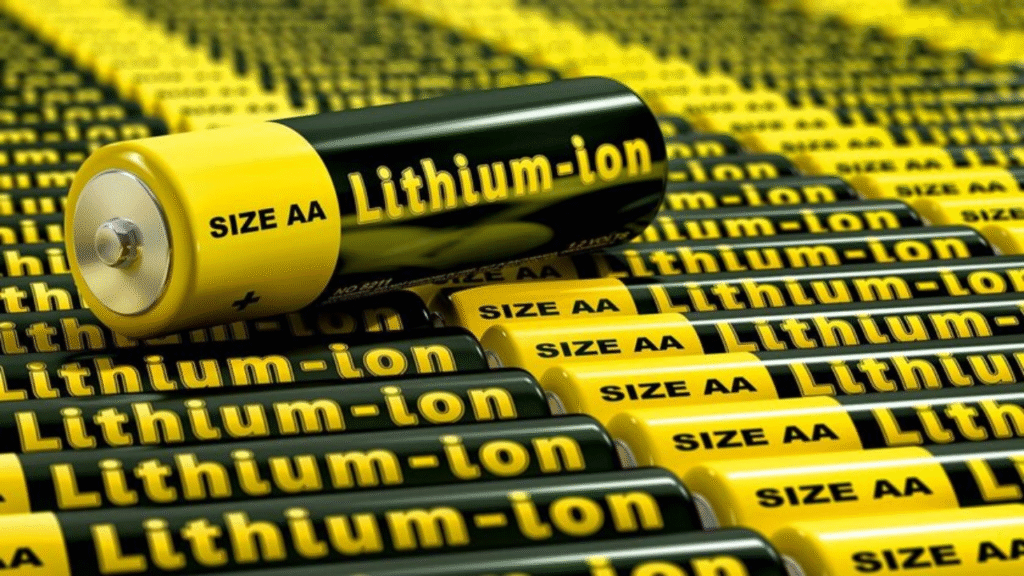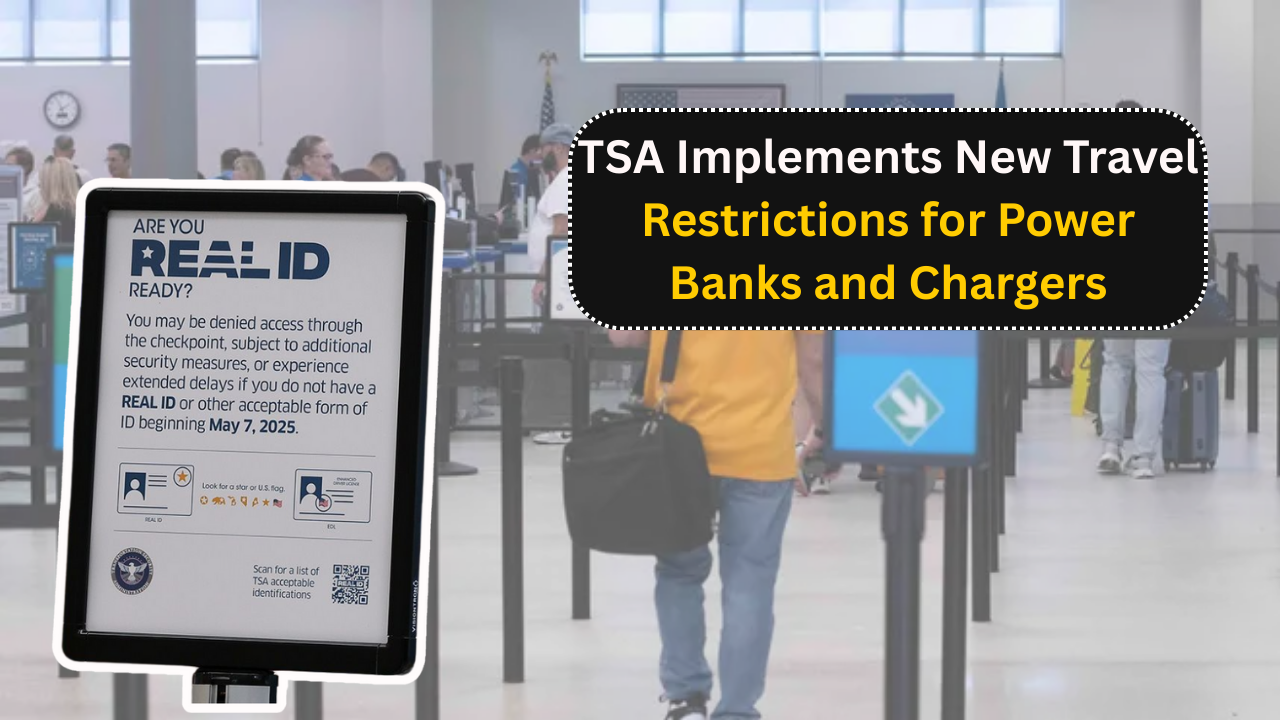As the May 7, 2025, deadline for REAL ID compliance approaches, travelers are urged to prepare their identification and take a closer look at what’s in their luggage.
If you’re planning to fly, make sure your REAL ID is ready, but also remember that some everyday travel essentials—like portable chargers and power banks—are now banned from checked luggage. The new policy, effective from March 1, 2025, will affect how passengers pack their bags before flying.
What’s Changing?
While you can still bring power banks and portable chargers in your carry-on luggage, they are no longer allowed in checked bags.
The ban comes as a result of several incidents involving lithium-ion battery fires on planes, which can be incredibly dangerous, especially in confined spaces like an airplane cabin or cargo hold.
According to Reuters, the TSA’s decision to enforce this new ban followed a tragic incident in January 2025. A power bank caused a fire aboard a Russian airplane in South Korea, forcing the evacuation of 179 passengers and six crew members. This event brought attention to the dangers associated with power banks and lithium-ion batteries, prompting stricter regulations.
Other Recent Incidents Involving Lithium-Ion Batteries
This is not the first time we’ve heard about fires caused by lithium-ion batteries on airplanes. In November 2024, a Southwest Airlines flight from Denver had to evacuate after a passenger’s cellphone caught fire.
A similar incident occurred on another Southwest flight heading to Miami in April 2024 when an overheated cellphone started emitting smoke, forcing an emergency landing in Palm Beach.
What makes lithium-ion battery fires particularly concerning is that they are extremely hard to put out. These batteries have caused significant fires in many different scenarios, from cellphones to Teslas and even electric vehicle battery plants. The concern has spread beyond just personal devices.
In 2024, former Florida Chief Financial Officer and current U.S. Congressman Jimmy Patronis warned of the risks posed by electric vehicles during hurricane season.
He highlighted the dangers of flooding, which could cause lithium batteries in vehicles to catch fire. One tragic incident saw a man in Charlotte County lose his life after a lithium-ion battery in a flooded golf cart exploded during a hurricane.
Why Are Lithium-Ion Batteries Dangerous?

Lithium-ion batteries are rechargeable batteries commonly found in many everyday devices, including cellphones, laptops, tablets, cameras, and smartwatches. While these batteries are highly efficient and long-lasting, they also pose a significant fire risk, especially if damaged or exposed to extreme conditions.
The Federal Aviation Administration (FAA) noted in a November 2024 statement that lithium-ion battery fires on planes have become more frequent over the past five years. The number of incidents has increased by over 42%, with at least one battery fire on a U.S. passenger flight every week since 2021.
These fires happen because lithium-ion batteries can overheat, catch fire, or even explode. The risk is further amplified when batteries are damaged or improperly packed, causing sparks or short-circuiting.
This is especially concerning on airplanes, where confined spaces and the absence of quick firefighting tools make it difficult to control such fires.
The TSA and FAA’s Response
In response to growing concerns, the FAA banned spare, uninstalled lithium-ion metal batteries from checked luggage in 2020. However, this new rule, which takes effect in 2025, goes further. It also includes power banks and cellphone battery charging cases, meaning that:
- Power banks
- Cellphone battery charging cases
- Rechargeable and non-rechargeable lithium batteries
- Cellphone batteries
- Laptop batteries
- External batteries
- Portable rechargers
Are now prohibited in checked luggage. Passengers are required to pack these items in their carry-on bags, where they are more easily monitored and handled in the event of an emergency.
The FAA further emphasized that when a carry-on bag is checked at the gate or at planeside, all spare lithium batteries and power banks must be removed from the bag and kept with the passenger in the aircraft cabin. The battery terminals must also be protected from short circuits, which can cause fires.
REAL ID – What You Need to Know?
Along with these new packing rules, another significant change is the implementation of the REAL ID requirement.
As of May 7, 2025, travelers will need to present a REAL ID-compliant form of identification to board a commercial flight in the United States or to enter certain federal buildings and facilities, including military bases and nuclear power plants.
The REAL ID Act, passed in 2005, established new security standards for state-issued IDs and driver’s licenses. It requires that IDs meet specific criteria to enhance national security following the 9/11 Commission’s recommendations.
If you’re unsure whether your ID is REAL ID-compliant, check for a gold circle with a white star in the upper right corner of your card, which signifies it’s ready for federal use.
How to Get a REAL ID in Florida?
In Florida, if you’ve received or renewed your driver’s license or state ID since January 2010, you may already have a REAL ID.
However, if you’re unsure or need to get one, you’ll need to make an appointment at a local driver’s license service center or tax collector’s office.
To obtain a REAL ID, you’ll need to present required documents in person, including proof of identity, proof of Social Security number, and proof of Florida residency. Once you’ve received the REAL ID, you can renew it online in the future unless your name changes.
Final Thoughts
As the REAL ID deadline approaches, make sure your identification is in order and remember to adjust your packing list.
While power banks and portable chargers are still allowed in carry-on luggage, you’ll need to leave them out of your checked bags starting March 2025. With these new rules, travelers can ensure that they stay safe and comply with the latest TSA and FAA guidelines when traveling by air.



